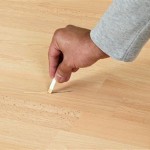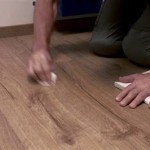Installing Vinyl Flooring Over Concrete: A Comprehensive Guide
Vinyl flooring has gained immense popularity due to its durability, affordability, and ease of installation. If you're considering installing vinyl flooring over concrete, it's crucial to understand the essential steps and techniques to ensure a successful and long-lasting installation.
Step 1: Prepare the Concrete Surface
The concrete surface must be level, smooth, and free of any debris or imperfections. Use a concrete leveler to fill any low spots or holes. Grind down any high spots or uneven areas. Ensure the surface is clean by sweeping or vacuuming thoroughly.
Step 2: Install a Moisture Barrier
Concrete is porous and can release moisture over time. To prevent moisture from damaging the vinyl flooring, install a moisture barrier. Use a polyethylene sheeting that extends 6-8 inches up the walls. Overlap the seams by at least 6 inches and tape them securely with duct tape.
Step 3: Determine the Layout
Before laying down the vinyl planks or tiles, determine the layout. Measure the room and plan the placement of the planks to minimize waste and ensure a visually appealing result. Use a chalk line to mark the starting point and any necessary cut lines.
Step 4: Lay Down the First Row
Start by laying down the first row of vinyl planks or tiles along the marked starting point. Use spacers to ensure even gaps between the planks. Cut the last plank to fit the remaining space. If using tiles, apply adhesive to the subfloor and press the tiles into place.
Step 5: Continue Laying the Flooring
Continue laying the subsequent rows by aligning the tongue-and-groove edges of the planks or by applying adhesive for tiles. Work your way from the center of the room outwards. Use spacers consistently to maintain even gaps and prevent buckling.
Step 6: Cut Around Obstacles
When encountering obstacles such as pipes or door frames, measure and mark the necessary cut lines on the vinyl. Use a utility knife to carefully cut the vinyl around the obstacle. Ensure a snug fit to prevent gaps.
Step 7: Secure the Edges
Once the vinyl flooring is completely laid down, secure the edges with baseboards or molding. This will provide a finished look and prevent the edges from lifting or curling over time.
Step 8: Roll the Flooring
Use a heavy roller to roll over the entire vinyl flooring surface. This will help to press the planks or tiles into place and ensure a smooth and even finish.
Maintaining Your Vinyl Flooring
To maintain the beauty and durability of your vinyl flooring, follow these simple tips:
- Sweep or vacuum regularly to remove dirt and debris.
- Mop with a pH-neutral cleaner specifically designed for vinyl flooring.
- Avoid using harsh chemicals or abrasive cleaners that can damage the surface.
- Protect the flooring from direct sunlight to prevent fading.
- Place mats under furniture legs to prevent scratches and dents.
By following these steps and maintaining your vinyl flooring properly, you can enjoy a beautiful and long-lasting floor covering in your home.

Tips For Installing Vinyl Plank Over Concrete Floors Lemon Thistle

How To Install Vinyl Or Laminate Floors In A Basement Over Concrete Slab

Easy Ways To Install Vinyl Plank Flooring On Concrete

Lvp Flooring Installation How To Install Luxury Vinyl Plank In A Basement Diy

Best How To Install Vinyl Plank Flooring Four Generations One Roof

Best How To Install Vinyl Plank Flooring Four Generations One Roof

Laminate Flooring On Concrete Basement Floors Expert Installation Guide Csg Renovation

Tips For Installing Vinyl Plank Over Concrete Floors Lemon Thistle

How To Lay Vinyl Sheet Flooring On Concrete

Tips For Installing Vinyl Plank Over Concrete Floors Lemon Thistle
Related Posts








